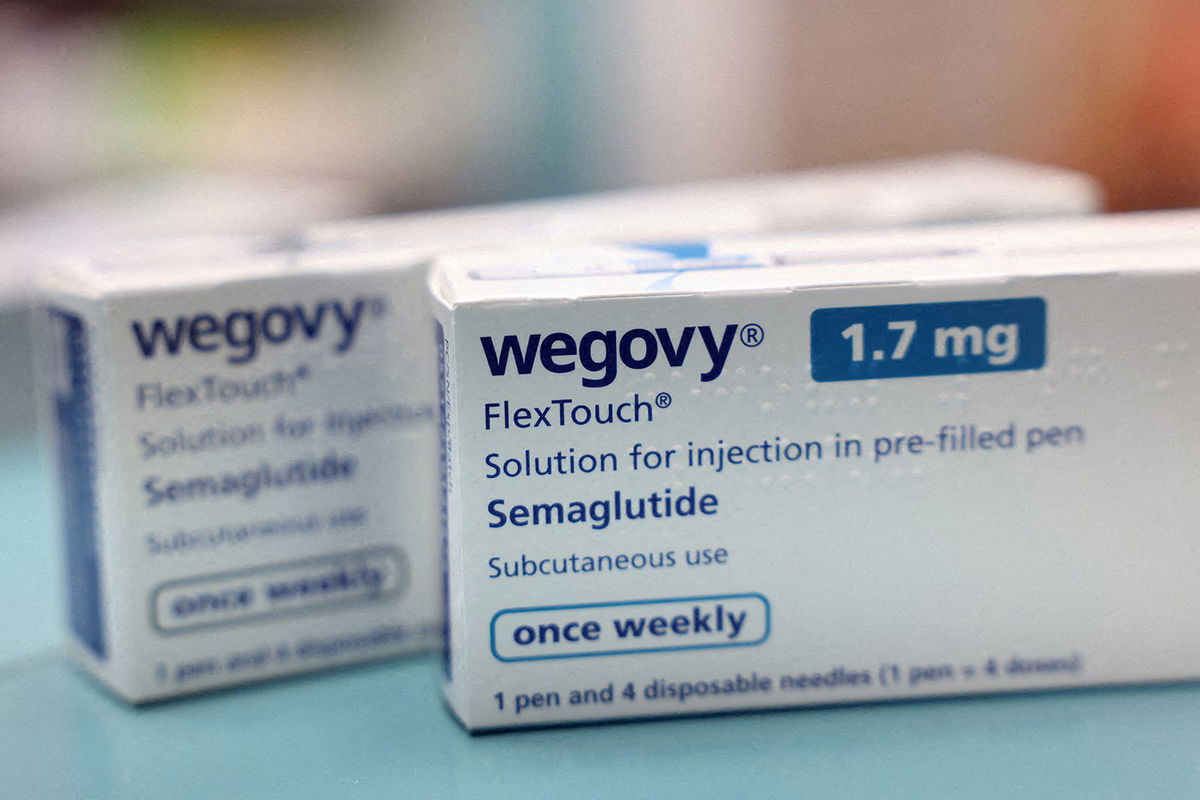7.4 million Americans could gain Medicare or Medicaid coverage for anti-obesity drugs under Biden proposal

By Tami Luhby, CNN
(CNN) — Millions more senior citizens and lower-income Americans could obtain coverage for costly anti-obesity drugs under a proposal unveiled Tuesday by the Biden administration.
Some 3.4 million Medicare beneficiaries and about 4 million Medicaid recipients would gain access to these medications, which can cost as much as $1,000 a month for the uninsured, the White House said in a fact sheet. Some Medicare enrollees could see their out-of-pocket costs drop by as much as 95%.
“This proposal would allow Americans and their doctors to determine the best path forward so they can lead healthier lives, without worrying about their ability to cover these drugs out-of-pocket, and ultimately reduce health care costs to our nation,” the administration said.
Although Medicare by law is not allowed to cover drugs for weight loss, the Centers for Medicare and Medicaid Services says it is proposing to reinterpret the statute to allow coverage for the treatment of obesity as a chronic disease.
“The medical community today agrees that obesity is a chronic disease,” Chiquita Brooks-LaSure, the agency’s administrator, told reporters. “It is a serious condition that increases the risk of premature death and can lead to other serious health issues, such as heart disease, stroke and diabetes.”
Some 22% of Medicare enrollees were diagnosed with obesity in 2022, more than double the number a decade prior, she said. Overall, about 40% of American adults have obesity.
The expanded coverage, which would begin in 2026, would not extend to those who are overweight.
The reinterpretation would also apply to the Medicaid program, which means that the mediations could not be excluded from coverage when used to reduce excess body weight and maintain long-term weight reduction as a treatment for obesity.
The Medicare coverage expansion would cost an estimated $25 billion over a decade and should not have a short-term impact on drug plan premiums, Meena Seshamani, director of the Center for Medicare, told reporters. Broadening Medicaid coverage would cost the federal government $11 billion and states $3.8 billion over a decade, said Dan Tsai, director of the Center for Medicaid and CHIP Services.
Whether the proposal ever goes into effect, however, is an open question since it can’t be finalized before President Joe Biden leaves office in January.
The incoming Trump administration may not view expanding coverage of anti-obesity drugs as favorably. Robert F. Kennedy Jr., whom President-elect Donald Trump has picked to lead the Department of Health and Human Services, is not a fan. RFK Jr. expressed his disapproval of the medications in a Fox News appearance last month, saying a better and less expensive way to address obesity would be providing good food to Americans.
However, Dr. Mehmet Oz, whom Trump tapped to head the Centers for Medicare and Medicaid Services, has touted anti-obesity drugs on his talk show and on social media.
“For those who want to lose a few pounds, Ozempic and other semaglutide medications can be a big help,” Oz posted on Instagram last year. “We need to make it as easy as possible for people to meet their health goals, period.”
The Trump transition team did not immediately respond to a request for comment.
Limited access
The high cost of anti-obesity drugs, including the GLP-1 medicines Wegovy and Zepbound, has limited Americans’ access to the medications. The list price for Wegovy, for instance, is about $1,350 for a four-week supply.
The Centers for Medicare and Medicaid Services opened the door to coverage of Wegovy for Medicare enrollees in March after the US Food and Drug Administration approved the drug for adults with cardiovascular disease who are either obese or overweight. Several insurers that provide Medicare Part D drug plans have since said they would cover the medication.
About 3.6 million Medicare enrollees with cardiovascular disease could be newly eligible for Wegovy, according to a KFF analysis released in April. That’s about a quarter of Medicare enrollees with obesity or overweight. (About 1.9 million of those in this group also had diabetes and may have already been eligible for Medicare coverage of other GLP-1 medications for diabetes, such as Ozempic.)
The coverage expansion could wind up costing Medicare nearly $3 billion a year and contribute to higher Part D premiums for all beneficiaries, the KFF analysis found.
Fully expanding GLP-1 coverage to Medicare enrollees with obesity or overweight would cost $35 billion over nine years, while the savings from their improved health would be small, according to a recent report from the Congressional Budget Office.
Meanwhile, only 13 states cover GLP-1 medications for obesity treatment, according to KFF. Half of states that don’t currently cover the drugs said they were considering adding it, but many were concerned about the cost.
Not all job-based health insurance plans cover anti-obesity medications, though larger employers are more likely to offer the benefit. Some 18% of firms in KFF’s annual Employer Health Benefits Survey, which includes those with 200 or more employees, cover GLP-1 drugs primarily for weight loss. About a quarter said they are very or somewhat likely to start coverage in the next year.
This story has been updated with additional developments.
The-CNN-Wire
™ & © 2024 Cable News Network, Inc., a Warner Bros. Discovery Company. All rights reserved.